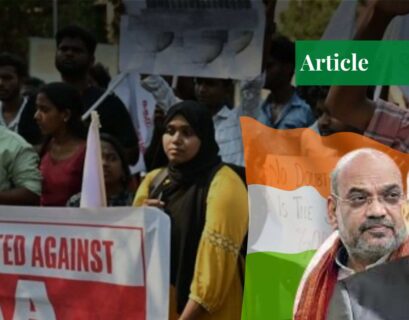She is a final year MPhil Gender Studies student at Quaid-i-Azam University, with a BS (Hons.) in English Linguistics & Literature from the National University of Modern Languages
The prevalence of divorce in Pakistan highlights the need for a comprehensive and total re-examination of its societal implications and legal intricacies. Pakistan’s legal landscape is a complex tapestry with many regulations and authorities. One matter that should come under scrutiny is the role of union councils in the issuance of divorce certificates.
This seemingly procedural task, entrusted to local governmental bodies has a significant impact on people, especially on women and their mobility, economic stability, and vulnerability to harassment and bribery.
The central argument is clear – if a court finalizes the marriage, then it should also be responsible for issuing divorce certificates right there and then, without involving external entities, thus circumventing jurisdictional complexities.
The Court-Marriage Dichotomy
While the courts are the authoritative bodies for formalizing marriages and resolving divorce cases, the issuance of divorce certificates falls under the jurisdiction of union councils after giving “90 days” of reconsideration. This incongruity raises legitimate questions about the efficacy of our legal system and its adherence to principles of gender equality and justice.
Consider the common scenario of a couple embroiled in marital discord, approaching the court for a legal divorce. Following due process and legal scrutiny, the court grants them a divorce decree, effectively ending their marital union. However, instead of promptly receiving the consequential divorce certificate, they are redirected to initiate a secondary bureaucratic process involving the local union council, by stating that a copy of this judgment and decree should be sent to the said council for the effectiveness of the divorce.
This seemingly redundant procedure not only prolongs the legal process but also introduces ambiguity in the pursuit of justice.
The Impending Perils of Delayed Divorce Certificates
One of the most pressing concerns stemming from this issue is the potential threat it poses to women’s lives and well-being.
1. Mobility Matters:
Mobility becomes a focal point in this discourse, particularly for women. The requirement of engaging with union councils for certificates may act as a deterrent for women due to the lack of easy access, coupled with a potential for harassment or delays. Union council’s control over divorce certificates creates an additional barrier for women in a society where mobility is already a challenge. The delay in obtaining essential documents can lead to a cycle of subjugation, forcing women to reconsider their decisions under duress.
2. Economic Conundrums:
The process of obtaining a divorce certificate from the union council also places additional charges on women particularly those from underprivileged economic backgrounds. This requirement necessitates a special trip, incurring extra expenses for transportation and mobility. For financially vulnerable women, already struggling to make ends meet, this poses a significant challenge. It’s a stark reminder of how bureaucratic procedures can disproportionately affect those who can least afford it.
3. Harassment and Corruption:
The convoluted procedure involving union councils has created a fertile ground for harassment and corruption. Vulnerable women seeking divorce certificates may find themselves subjected to corruption or exploitation, exacerbating an already emotionally taxing process.
The Call for Reform
To address these concerns, Pakistan’s governance structures and legal framework must undergo a much-needed reform. The issuance of divorce certificates should be streamlined, with the court that presided over the divorce process concurrently tasked with providing the certificate upon granting the divorce decree. This would not only eliminate potential threats to women but also rationalize the legal process, making it more accessible and impartial.
Moreover, it is essential to consider the issue of jurisdiction in this context. Matters as sensitive as divorce should ideally remain within the purview of the judicial system, where decisions are based on law and justice, rather than being delegated to local political entities.
As Pakistan strives for gender equality and justice, re-evaluating the role of union councils in divorce certificate issuance becomes paramount. It is high time that women are empowered to exercise their rights without unnecessary barriers, thereby reclaiming their mobility, economic security, and personal dignity. The reform in this area could herald a new era of equitable and empowering societal progress.

Consider a scenario where the court finalizes a divorce – instead of succumbing to the pressure of a 90-day wait for a certificate, the court’s judgment becomes final and executable immediately.
The certificate of divorce, a critical legal document, should be issued by the court itself, ensuring women’s autonomy and relieving them from the shadows of exploitation.
If you want to submit your articles and/or research papers, please check the Submissions page.
The views and opinions expressed in this article/paper are the author’s own and do not necessarily reflect the editorial position of Paradigm Shift.



















